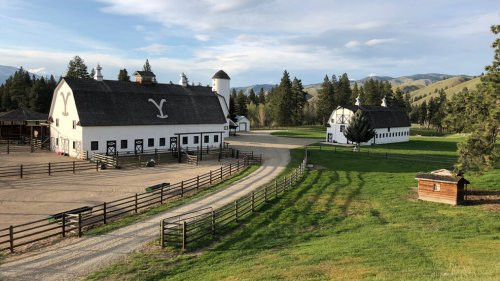A Cinematic Icon Turns 90: Celebrating Sophia Loren's Legacy
Anna Magnani, Gina Lollobrigida, Silvana Mangano, Claudia Cardinale, Monica Vitti… Italy has certainly produced more than its fair share of world-class female stars. Towering above them all – in terms of longevity, but especially in terms of international renown – is Sophia Loren.
From her humble beginnings in Naples, Loren rose rapidly from local beauty queen to national icon to major Hollywood star. Historian Stephen Gundle has noted how Loren’s “dark features and opulent figure have long been associated with a certain idea of Mediterranean beauty” but that “she also proved herself to be an actress of rare spontaneity whose talents could be turned to dramatic roles as well as to comedy or farce.”
By 1960, with her career expertly guided by Milanese super-producer (and later husband) Carlo Ponti, she had already starred opposite acting royalty such as Cary Grant, Frank Sinatra and John Wayne. Some of her best-remembered work, however, came opposite fellow Italian acting star Marcello Mastroianni, often under the direction of actor/director Vittorio De Sica.
The Gold of Naples (1954)
Director: Vittorio De Sica
Still barely out of her teens, Loren made no fewer than 10 films in 1954. The most important in terms of the development of her career was De Sica’s episode film The Gold of Naples. It was the encounter with De Sica – himself an accomplished, veteran actor – that proved crucial in giving her the confidence to take on leading roles. Sharing top billing with established Neapolitan stars such as Totò, Eduardo De Filippo and Tina Pica, Loren’s episode ‘Pizza on Credit’ sees her play a vivacious pizzaiola who raises suspicion when her valuable engagement ring goes missing.
Too Bad She’s Bad (1954)
Director: Alessandro Blasetti
Another notable 1954 picture for Loren was Alessandro Blasetti’s Too Bad She’s Bad. In this effervescent comedy, De Sica moves back in front of the camera to play the patriarch of a family of small-time thieves. Loren plays his daughter and Marcello Mastroianni co-stars as their unsuspecting victim. It was the first collaboration between Loren and Mastroianni, the pair who would go on to become Italian cinema’s golden couple. They’d make a further 11 films together, with the last – Robert Altman’s Prêt-à-porter (1994) – coming some four decades after Blasetti’s film.
The River Girl (1954)
Director: Mario Soldati
Carlo Ponti’s producing partner Dino De Laurentiis had launched the career of Silvana Mangano with 1949’s nerealist/noir hybrid Bitter Rice and Ponti’s idea was to craft a similar vehicle for Loren. Shot, like Bitter Rice, in and around the Po Delta and directed by Mario Soldati, The River Girl was co-written by Pier Paolo Pasolini and Giorgio Bassani and provided Loren with her first substantial leading role. “To create a character that would fit me perfectly,” Loren explains in her memoir, “a character with more than one mood, Carlo and Soldati had found inspiration in that damp clime, populated by beautiful women wearing bandannas and shorts, and by small-time crooks whose sole purpose in life seemed to be to make the women suffer.”
The Black Orchid (1958)
Director: Martin Ritt
While it’s not one of her most famous Hollywood pictures, The Black Orchid won Loren her first major acting prize, the Coppa Volpi for best actress at the 1958 Venice Film Festival. Directed by Martin Ritt (Paris Blues, The Spy Who Came In from the Cold) it tells of a mafia widow (Loren) and businessman widower (Anthony Quinn) whose blossoming relationship is opposed by those around them. Although not particularly Hitchcockian in style, the film features several regular collaborators of the master of suspense – from writer Joseph Stefano to costume designer Edith Head to cinematographer Robert Burks.
Two Women (1960)
Director: Vittorio De Sica
Critics and audiences in Italy were not particularly taken with Loren’s Hollywood output of the mid to late 1950s. The consensus was that despite the gloss and glamour, no American film had really managed to unlock her full potential. On her return to Italy in 1960, she starred in the WWII drama Two Women opposite Eleanora Brown and Jean-Paul Belmondo. She felt a strong personal connection with Alberto Moravia’s source novel about a mother and her 12-year-old daughter evacuated to the countryside on the outskirts of Rome and the harrowing ordeal they suffer at the hands of soldiers of the liberating army. Ponti enlisted Loren’s favourite director De Sica as well as the latter’s trusted screenwriter Cesare Zavattini (Bicycle Thieves, Umberto D). The result was Loren’s most deeply felt, raw performance, which won her the 1961 best actress Oscar.
Yesterday, Today and Tomorrow (1963)
Director: Vittorio De Sica
The first of two films Loren made back-to-back with De Sica and Marcello Mastroianni, Yesterday Today and Tomorrow represents a marked shift in tone from the hard-hitting Two Women. A comic melodrama with three stand-alone episodes set in Naples, Milan and Rome, the picture takes a satirical swipe at Italian sexual mores. Loren plays a Neapolitan black marketeer, the wife of a Milanese industrialist and a Roman sex worker. The Rome episode features one of the most famous scenes in Loren’s filmography – her character’s strip-tease for an ecstatic client (played by Mastroianni), which the pair would recreate for Prêt-a-porter three decades later.
Marriage Italian Style (1964)
Director: Vittorio De Sica
The 1946 play Filumena Marturano was written by the acclaimed Neapolitan playwright Eduardo De Filippo for his sister, actor Titina. It tells of a middle-aged former sex worker who, after learning that her lover plans to marry someone else, takes desperate measures in an attempt to convince him to marry her instead. Loren identified closely with the central character despite being considerably younger than the Filumena of the original play. “It was hard to imagine a role closer to my heartstrings,” she writes in her memoir. “At every moment I was being asked to interweave happiness and sadness, courage and despair, ugliness and beauty, placing them at the service of deeper sentiments.”
A Special Day (1977)
Director: Ettore Scola
Set on the day of Hitler’s visit to Rome in May 1938 – a day of large-scale celebrations in the city’s swastika-laden historic centre – Ettore Scola’s intimate two-hander unfolds in an apartment block just a few miles away from the fascist festivities. Loren plays Antonietta, the downtrodden wife of a blackshirt official and mother of six children. She meets Gabriele (Mastroianni), a radio announcer recently fired from his job after his bosses found out about his homosexuality. Soon, a close, if uneasy bond develops between them. Filmed in a sepia-toned palette based on director Ettore Scola’s childhood memories of the pre-war era, Loren and Mastroianni deliver powerful, yet restrained performances as characters who in different ways – and like so many others – find themselves cruelly marginalised by Mussolini’s regime.
The Life Ahead (2020)
Director: Edoardo Ponti
Eager for some time away from filmmaking after decades in the international spotlight, Loren’s output slowed down from the mid-1980s onwards. Since the early 2000s, some of her best performances have been under the direction of her son, Edoardo Ponti. Set in Bari and adapted from the novel by Romain Gary, The Life Ahead sees Loren play a former sex worker and Holocaust survivor caring for an orphaned 12 year-old Senegalese boy. Sixty years after first winning it for the first time, The Life Ahead won Loren a seventh David di Donatello award for best actress. “Maybe this will be my final project, I don’t know,” she told the audience in her acceptance speech, “but after so many films, I still have the hunger to take on marvellous, beautiful stories. I can’t live without cinema.”
A Timeless Icon, A Lasting Legacy
Sophia Loren's journey from a humble Neapolitan girl to a global cinematic icon is a testament to her unwavering talent and dedication. Her on-screen presence has captivated audiences for decades, her performances ranging from the dramatic to the comedic, and her beauty has transcended generations. As she turns 90, her legacy continues to inspire and entertain, solidifying her place as one of cinema's most enduring and beloved stars.
















